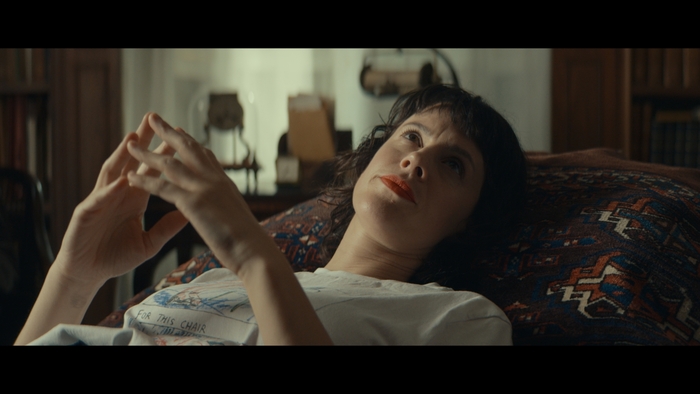"I was thinking of a story about a 30-year-old woman going through a moment of crisis, as often happens. It was during the creation phase together with the other authors that I was diagnosed with endometriosis. Then we understood that the disease was fundamental for the protagonist, to make her grow, to understand herself. I strongly wanted the series to have an ironic side, lightness, in addition to the theme which is important."
Chiara Martegiani and Valerio Mastandrea are a couple in life and now they are also the protagonists of the series Antonia, from March 4th on Prime Video.
Created by Martegiani herself and directed by Chiara Malta (with the creative supervision of Mastandrea), it tells of a 33-year-old woman (Martegiani) who discovers that she suffers from endometriosis, a chronic and disabling disease.
A dramedy series with hints of comedy that offers an intimate look at the ability to react to pain.
"In her ramshackle psychotherapy sessions, during which she reviews and reconstructs her past, Antonia learns something and in the end she will surprise us, starting a journey of self-discovery", says the protagonist and author.
Written by Elisa Casseri, Carlotta Corradi and Martegiani herself, the six-episode series is a Fidelio e Groenlandia production (a company of the Banijay Group) in collaboration with Prime Video, and with Rai Fiction.
The cast also includes Barbara Chichiarelli (the protagonist's best friend), Emanuele Linfatti, Leonardo Lidi.
In Antonia there is a male character, Manfredi, explains Mastandrea, "a little different from those we are used to: he is practical, he loves his partner without asking her anything, he is there when she tells him after leaving home who has endometriosis."
The two screenwriters add: "We started from real bases, we consulted a psychologist and tried everything, even the shamanic journey. The symbol of the series is a chicken, but at the beginning it was an orangutan. Nobody knows but the chicken for six months is hermaphrodite, then "chooses". And then obviously we talk about ovaries, and therefore eggs are the ideal metaphor."
Mastandrea adds: "The work with Chiara was born at home, so we allowed ourselves to create a better man than me: he is perfect, extraordinary, he does a humble, understanding job, he fixes everything. He is an extremely healthy person. Crises like this they can become constructions and comparisons. We wanted a non-stereotypical male. When faced with a request for parenthood, a woman's refusal can create a wall, but instead he still makes himself available. There is a crisis but there is no closure."
Martegiani confirms: "In some ways Manfredi is more feminine than Antonia. She runs away, he instead wants to clarify, a difference that interested me. But an understanding male is not necessarily a loser male, of course. The series had an impact on me a therapeutic effect, in particular towards this work. When I came to the series I had already faced motherhood and endometriosis, and I was a different woman. I had a lot of fun and I grew up."
Antonia isn't a nice woman at the beginning, she treats her best friend very badly, but over the course of the series you end up understanding her." Could it be that this male weakness is sought too much, even in a forced way? "There is a risk - replies Mastandrea -, we are living in a decade of exasperation with respect to certain topics that should perhaps be treated in a more natural way.
Personally, I play males who haven't made it for thirty years, but you can see that I haven't influenced the dominant culture, because the exercise of male power in certain areas and contexts persists.
When I talk about talking about different men, I'm not going towards this, I simply say that our work must address the complexity of gender in a healthy way.
But the tormented man was already the subject of Massimo Troisi, he was the first, for example, because his story allowed him to do so." Regarding the fact of dealing with endometriosis in a series, Mastandrea again explains "we took it as pretext of a social framework: with endometriosis you are better off if you become a mother or if you stop being fertile, and therefore a woman.
It seemed to us the perfect synthesis of the demands of modern society."
Reproduction reserved © Copyright ANSA

